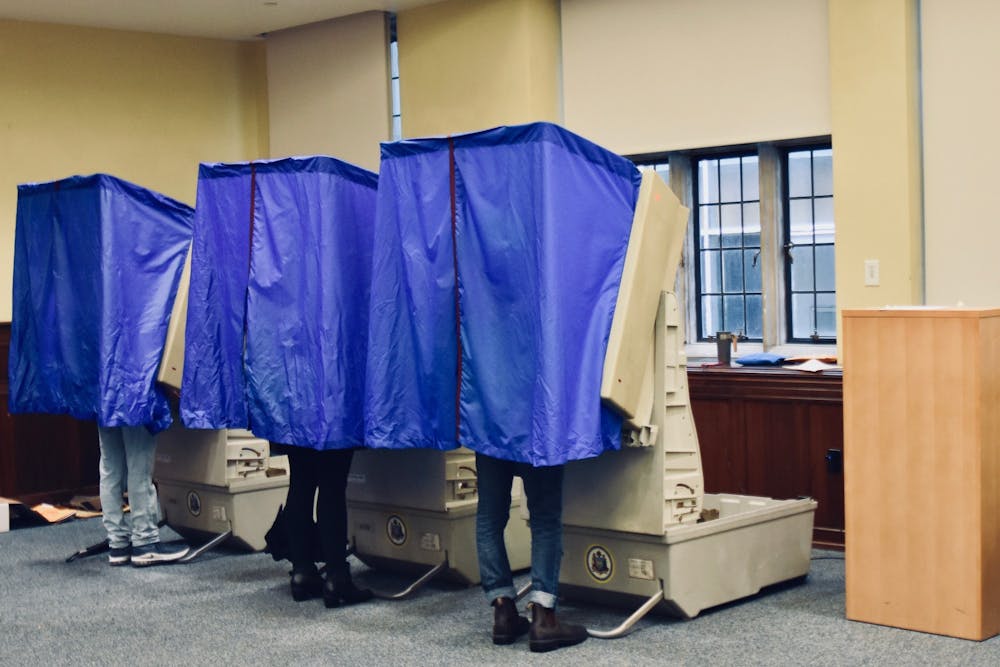
After approval from all 67 counties, Pennsylvania is on track to upgrade all its old voting machines in time for the 2020 election. Although new machines are meant to increase accuracy, some political science experts at Penn worry the sudden change will cause lower voter turnout.
The new machines will leave a paper trail instead of only recording votes electronically. Reliance on electronic systems alone does not always protect from potential hacks or system crashes. However, the sudden change in ballot technology may lead to confusion and longer lines at the polls, therefore decreasing the overall number of votes cast.
In February 2018, Governor Tom Wolf issued a directive telling all Pennsylvania counties to install new ballot machinery with paper trail technology. In the statement, Wolf justified the change as an "important step" towards greater accuracy for the state’s voting system and the trustworthiness of election results in Pennsylvania. On Jan. 1, Dauphin County became the last one to comply with the directive.
While praising the accuracy of the new machines, Penn political science professor Marc Meredith acknowledges they could impact the number of people who actually cast their votes in the coming presidential election.
“We certainly do know from political science research that, if the lengths of [polling] lines do increase, at some point it causes people to start getting out of line without casting a ballot, which I think, in this case, is a possibility," he said.
Besides practical concerns on election day, many Pennsylvania counties are struggling to afford the machines, which are estimated to cost over $120 million, according to the Philadelphia Inquirer. There is only around $14 million available in state funding, so counties may have to pursue external sources of financing.
While many counties already planned to install machinery, the actual purchase of the machines was scheduled to take place over several years rather than over a few months, the Inquirer reported.
According to the National Conference of State Legislatures, only 13 states do not currently require ballot machines to leave a paper trail. Out of those 13 states, nine still use machines with a paper trail.
Despite financial worries and potential logistic problems, College sophomore and current political director of Penn Democrats Michael Nevett believes new machines must be in use for the 2020 election, especially given the concerns about Russian hacking and interference in the 2016 presidential election.
“Considering these recent threats to our democratic process, there’s really nothing that’s more important than making sure we have an accurate count,” he said.
College sophomore and Penn Dems’ legislative director Francois Barrilleaux got to test out the new machines during an event organized by Philadelphia city commissioners at the University of the Sciences in November. Although he sees the new ballot technology as a step in the right direction, he remains wary of election interference.
“We need to ensure that these paper trails are going to be used, because really, the paper trails are a bunch of barcodes," Barrilleaux said. "There’s all these other points in the electoral process where results can be tampered with that don’t just have to do with the voting machines.”
The Daily Pennsylvanian is an independent, student-run newspaper. Please consider making a donation to support the coverage that shapes the University. Your generosity ensures a future of strong journalism at Penn.
Donate




